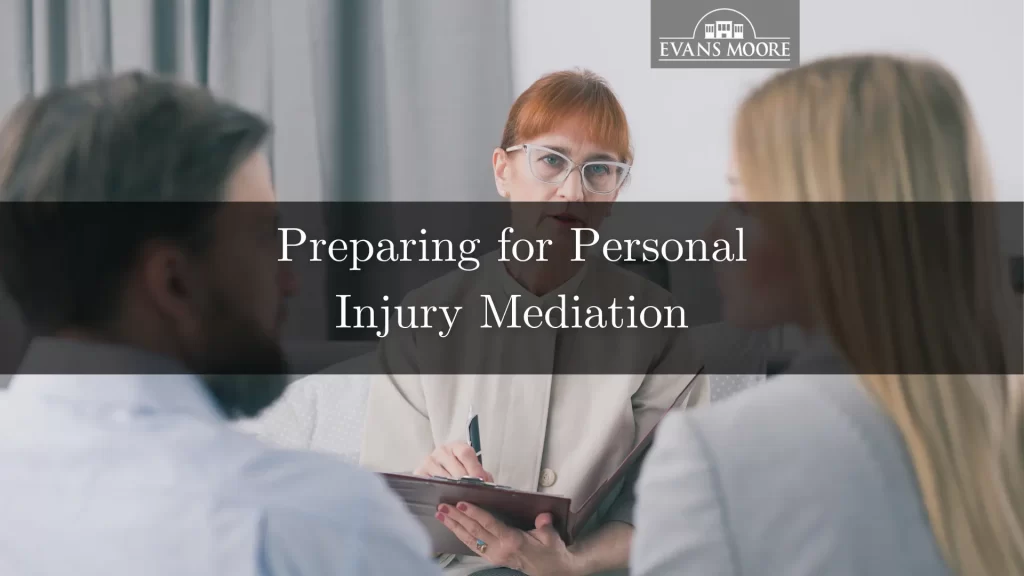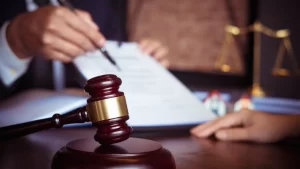
In a personal injury case in South Carolina, mediation can increase the likelihood of arriving at a satisfactory resolution out of court. Preparing for mediation helps you present your case effectively and feel comfortable with this alternative dispute resolution process. Here’s what to do before beginning mediation.
Consult With Your Attorney
Meeting with your attorney before entering mediation is essential. Your lawyer can explain the mediation path and give you information about what to expect from the process.
Your personal injury lawyer can discuss the strengths and weaknesses of your case with you, and between you, you can decide which elements you might be willing to compromise on and which you are not. Your lawyer can also provide insight into the strengths and weaknesses of the other side’s case. Your attorney can explain the strategy they will use for mediation.
Choose a Mediator
Both sides must agree on who will fulfill the role of mediator. This neutral, trained third party must be knowledgeable about the law and free of any conflict of interest. The mediator must be neutral and encourage an atmosphere wherein the parties can engage in an amicable attempt to reach a compromise.
The mediator and both parties will sign a confidentiality agreement protecting any information shared by either party in the course of the mediation. This agreement makes it possible to talk freely without worrying it will harm either party’s case in court.
Decide How Far You Are Willing to Compromise
A successful mediation is based on compromise. However, knowing what you’re willing to compromise requires thorough preparation.
You and your lawyer may determine that there are some losses you should not compromise on. For instance, you might decide you should not accept less for medical bills and loss of income but that other losses might be less urgent.
Gather Critical Evidence
Evidence is a critical part of proving your case. Some types of evidence you might need during mediation are:
- Medical Records: Medical evaluation and treatment records about medical issues related to the accident and the need for treatment can support your demand for compensation.
- Physical Evidence: Photos and videos of the accident can show what happened. This information could include pictures of your injuries after the crash, and CCTV cameras could show the accident in progress.
- Witness Information: Statements from any witnesses to the accident could lend credibility to your version of events.
- Insurance Company Information and Correspondence: Bring the at-fault party’s policy if you have a copy. Bring notes on conversations you might have had with the insurer and their questions and responses.
Review Your Losses When Preparing for Personal Injury Mediation
Ensure you thoroughly know all your accident-related losses. This is important since no further claims are possible once a settlement is agreed to and accepted.
Any settlement agreement you sign will include a waiver that clears the insurer of further liability, preventing you from making any additional claims for the same accident. Having a good understanding of the compensation you deserve makes it easier to reach a fair settlement.
Other losses you should know the value of include:
- Impaired future ability to work
- Inability to work at the same job or profession
- Assistive devices that will be required as time goes by
- Home and vehicle modification to accommodate disabilities
Review Your Case’s Strengths and Weaknesses
Every case has its strengths and weaknesses, some more than others. Your lawyer will evaluate your claim with this in mind. Knowing what works in your favor and what goes against you is crucial. If your case is strong and you have plenty of supportive evidence, you might get closer to meeting your original demand in mediation. Conversely, if you were partly to blame, this might weaken your case, and you should be prepared to compromise some elements of your claim.
Decide on What You Are Willing to Accept When Preparing for Mediation
 Not all offers you’ll receive during mediation are acceptable. However, it is necessary to have a settlement strategy beforehand that includes knowing your priorities and what you are willing to concede. Having this information before mediation makes your stance stronger and less stressful.
Not all offers you’ll receive during mediation are acceptable. However, it is necessary to have a settlement strategy beforehand that includes knowing your priorities and what you are willing to concede. Having this information before mediation makes your stance stronger and less stressful.
Know the Defense’s Situation
Researching the at-fault party can help. If you are in mediation with a business or public entity, proving that others also suffered from their negligence strengthens your case. Likewise, if an accident was due to drunk driving, your position is more robust due to the defendant’s tendency to engage in similar behavior in the past.
Doing some research can help secure a better settlement. Some at-fault parties might not want a public case and would rather settle out of court. Knowing background information about your opponent can help you reach a reasonable compromise.
Be Ready for Arguments by the Defense
Be ready for arguments against your claim from the defense. Your lawyer knows what areas the defense will target and can develop counterarguments in preparation. This tactic is crucial when presenting the case to the mediator. It also shows that your side wants to negotiate and believes in their case.
For example, the defense might claim that your injuries are not related to the accident but result from a previous injury. Even if you had a prior injury, medical records can show that the accident that is the topic of the mediation caused your medically documented trauma.
Learn to Listen During the Mediation Process
To achieve constructive mediation, you must listen to what the other side has to say and their offers or proposals. Keeping the dialogue open is necessary to reach a successful outcome.
Be Realistic About the Outcome
Understand ahead of time that not all mediation succeeds. You are not obligated to accept a settlement. Your lawyer will help you decide if further mediation is still helpful.
The mediation process can benefit from careful planning, organization, and collaboration. Gathering evidence and building a solid mediation strategy can help you obtain a successful resolution. Mediation allows both sides to concede to a mutually beneficial agreement and avoid a lengthy and costly trial.
If you’re facing mediation for your South Carolina personal injury case, call Evans Moore, LLC for help today at (843) 995-5000. Our skillful personal injury lawyers have years of experience in mediation and are ready to help with yours.